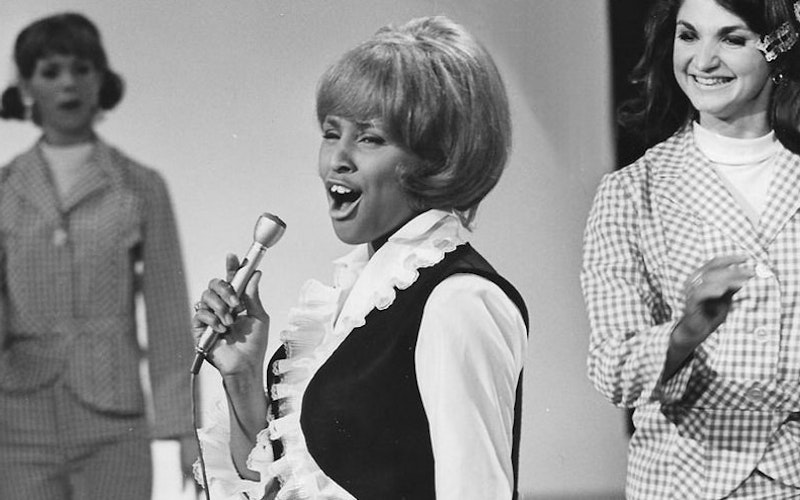
Music
The Surprising Advent Message of Darlene Love
Darlene Love’s “Christmas (Baby Please Come Home)” is the finest seasonal song you won’t sing in church this December.
Not that Love’s recording would sound out-of-place. With the type of grit necessary to push back grief, she sings of “the church bells in town / all ringing in song.” Even in full, glorious voice, her melodic melancholy is out-of-tune with their “happy sounds.” And Love’s call-and-response with her backing vocalists, woven throughout, would rattle even the sturdiest sanctuary rafters.
Love’s Christmas classic, which turned 55 this year, finds an even deeper resonance with the season and its through line. “Christmas (Baby Please Come Home)” might as well be an Advent carol, expressing the sort of long-suffering and expectation only the truest believers, who hope against the odds, can muster.
The cornerstone of a 1963 collection from troubled musical genius—and eventual convicted murderer—Phil Spector, “Christmas (Baby Please Come Home)” rings with all the producer’s forward-thinking brilliance. An arrangement which prefigures the rock splendor of anthems like Bruce Springsteen’s “Thunder Road” sounds pitch-perfect, even today.
Rendered by legendary studio collective The Wrecking Crew, the track opens with Love’s precious bells; potent yet pliable, their shimmer sounds out whatever mood the listener wants to hear, either sorrow, faith, or something in between. Picking up the pace and ushering the tune into its truest form, the drums incarnate Love’s quickening pulse. And glory be—the saxophone solo which splits the song in two draws from deep wells of soul.
But none of it would work without Love, who turned in the performance of a lifetime before her star was even born. The great actresses of our generation would labor to deliver line readings like Love’s rendition of “Pretty lights on the tree / I’m watching them shine / You should be here with me,” all brave face and barely-concealed craving. The way she wraps her voice around the words “If there was a way” tugs the heartstrings and ties them in a knot.
TC Podcast: Secular Christmas Songs (Mariah Carey, Jonas Brothers)
In strange, beautiful ways, Love’s vocals whisk listeners back to the first Christmas, lonely yet graceful as it was. She sounds out a faint echo of Mary’s ancient narrative, both women traveling hard, unforgiving roads to their place in Christmases past. The mother of Jesus no doubt faced whispers and stares from “polite” society as she stuck to her story about an immaculate conception.
Lacking, of course, the same scandal or significance, Love took another difficult path to the Christmas canon. Where Mary drew unwanted attention to herself, Love wore a cloak of invisibility. Morgan Neville’s Oscar-winning documentary 20 Feet From Stardom details Spector’s practice of shifting credit for Love’s early vocals to bigger-name acts. For too long, her career offered a complicated answer to the question “If someone sings on a hit song but their name isn’t on the front of the record, do they really make a sound?”
Thankfully, a mid-career renaissance made Love a concert draw and a fixture on David Letterman’s show where she sang “Christmas (Baby Please Come Home)” nearly 30 times, proving Letterman’s Grinch-like exterior housed a heart bigger than most.
Both the Virgin Mary and Love also sound mournful cries—Mary from excruciating pain, Love from a case of the blues—against backdrops that are happier and more hopeful than one might expect. Love lays her soul bare surrounded by Spector’s ornate Wall of Sound; Mary groaned and exhaled her pain at the dawn of a heavenly kingdom.
We can’t know if Love’s baby ever came home for the holidays—that’s not how pop songs work. But as we listen to her exquisite pining, all the way through the song’s coda, where she sings the word “please” as if it’s a prayer, we remember the rhythms of the world’s best story. Yearning, then deliverance. Absence, then incarnation. Love squandered, then love sealed forever.
One person cannot spare another person every hurt or pain, at least not in the way Love hopes. But the right person, at the right time, as part of the right plan, can save the world from its sins and create a people where once there was none. All Love’s pleading, beautiful and heart-wrenching as it is, finds its answer in another song: “A thrill of hope / the weary world rejoices / For yonder breaks / a new and glorious morn.”
Topics: Music